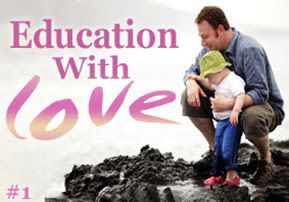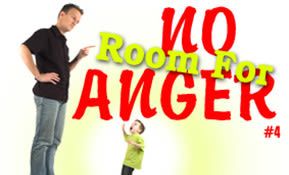
Education with Love
In Part 1 of Rabbi Shalom Arush’s new 5-part series on child-rearing, we see how parents often take children’s behavior as a personal insult, when the child had no such intent.

Translated by Rabbi Lazer Brody
Education with Love, Part 1
The subject of child education is not only intricate, but delicate. It may sound confusing and contradicting, but in reality, the key to successful child-rearing is actually quite simple. Those parents who succeed in looking at their children objectively, in other words, that they consider the child's needs rather than their own selfish interests, are the ones who succeed in raising happy and well-adjusted children. During this five-part series, G-d willing, we'll elaborate a lot more on this point.
The first big mistake that parents make is that they take personal insult in the child's behavior. Let me give you an example: a mother or father is tired, and wants to take a nap in the afternoon. Their 4 year old and 6 year old want to have a pillow fight or play cowboys and Indians, something perfectly normal for two little boys. The parent yells for them to be quiet, and let's say that they're quiet for a minute or two. But, as normal 4 and 6 yr. olds, they soon forget themselves and now are in the midst of their imaginary horseback chase in Apache country. Six-year old Chief Sitting Bull is chasing 4-year old General Custer outside of the bedroom into the living room, which has now turned in to Dakota Territory. Remember, this imaginary game is quite real for a child. Pretty soon, little General Custer is captured, and he starts crying because he now wants to be an Indian too. Six-year old Sitting Bull now gives out an Ogalala Sioux war cry, and starts his victory dance on top the sofa, waving his spear (which is really the broom from the kitchen) and praising The Almighty the same way that he saw in the story book that Grandpa bought him for Chanuka.
By this time, Mom flies out of bed, and in earthquake terms, her blood pressure is about 6.8 on the Richter scale. If it's dad that happened to be resting, he might be springing out bed with a belt or some other foreboding weapon in his hand. They start yelling at the boys, shouting in anger, sometimes even cursing. They shout all types of accusations like, "You two never listen!", or "Don't you have the slightest consideration for your mother or father?" Even worse, they come it with all kinds of labels and epithets like "wild animals," "brats," "deaf," "nasty kids" – you name it.
Now, let's look at this objectively: little Avremele and Yankele are only 4 and 6 years old, respectively. The only thing that's on their mind right now is their game. They both love their parents. They don't have a bone of inconsideration or insolence in their innocent little bodies. Their objective is to play and to enjoy their children's world of make-believe; they're doing what a 4 and 6 year old are geared to do. Never do they have the slightest intent of disturbing their parents. Yet, Mommy or Daddy wipes the floor with these pure little souls, pouring out a ton of wrath that does who-knows-what type of damage to their little souls for posterity.
Let's pause for a moment: children must certainly be educated with borderlines. For example, we teach them that 2 PM on Shabbat in the afternoon is a time when the whole family takes a rest, and not time for the Wyatt Earp and Jesse James to have their gunfight in the OK corral. Yet, a parent must remember that children have a Yetzer Hara, an Evil Inclination, and they also have their own little lusts.
It's amazing how parents are so hypocritical – a father's bi-weekly afternoon on the golf course or on the tennis court is holy, but when the 4 and 6 year old want to play their game, they're called "rotten kids." A father or mother might come home in the afternoon tired and irritable, and then expect their kids to be completely silent, something a small child can't do for long. Then, they take it personal and react with anger, nerves, and a brutal release of parental tensions, none of which has anything to do with child education.
Parents ask, “What do we do about rowdy kids?” My first answer is don't come home tense. Do you expect your seven-year old to be considerate of your hard day? If so, you are thinking only of yourself. Think about it honestly for a moment – you are thinking about yourself, but you expect little 6-year old Rivkal'e to be completely altruistic and to think only of her mother. Is that fair? Isn’t that a double standard? We certainly don’t want to teach our children (by our own negative personal example) to be egocentric hypocrites.











Tell us what you think!
Thank you for your comment!
It will be published after approval by the Editor.